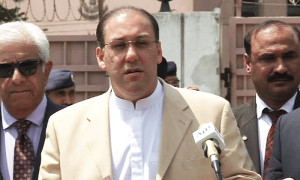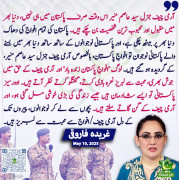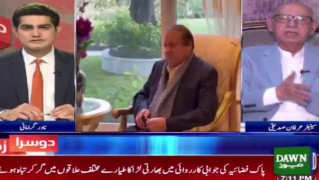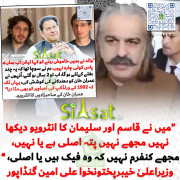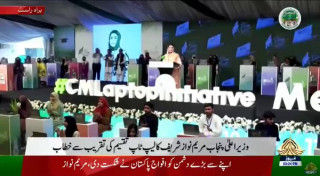Night_Hawk
Siasat.pk - Blogger
Diabetes care in Ramadan: An exemplar of person centered care
Fatema Jawad ( Editor-in-chief, JPMA. )
Sanjay Kalra ( Department of Endocrinology, Bharti Hospital and B.R.I.D.E., Karnal, India. )
The World Health Organization defines health as a state of complete physical, mental and social well-being and not merely the absence of disease or infirmity.[SUP]1[/SUP] Ramadan, the holy month of fasting, is observed by about one-third of mankind every year. During this month, the devout fast from pre-dawn to post-dusk, and spend time in prayer and meditation.
For the believer, Ramadan represents a period of self- discipline, self-control and special prayers to come close to togetherness with Allah. The believer happily and patiently tolerates the challenges associated with fasting to achieve a "greater goal" or benefit. Fasting not only confers physical health benefits, as proven by various researchers,[SUP]2[/SUP] but also leads to mental and social well-being. Thus, Ramadan is an integral part of the fabric, not only of the life of many, but of their health as well.
For the person with diabetes, however, fasting presents a major challenge. The meal pattern that observance of Ramadan demands may predispose one to periods of hypoglycaemia as well as hyperglycaemia. This fluctuation in glycaemic control may lead to unwanted adverse effects on health. The potential exposure to physical ill- health that Ramadan may entail in a person with diabetes, however, must be balanced with the person's perceived benefits on mental and social well-being.
The physician who manages diabetes in Ramadan, and provides pre-Ramadan counseling for it has to walk a tight rope. The physician has to strike a balance between the patient's wishes and preferences along with cultural habits on one hand, biomedical needs on the other, and algorithmic or textbook guidance on yet another one! It is this practice which is known as person centred care (PCC).
The philosophy of PCC enjoins the health care professional to provide treatment which "is respectful of and responsive to individual patient preferences, needs, and values" and ensures" that patient values guide all clinical decisions".[SUP]3
[/SUP] It also expects professionals to take cognizance of the person's psychosocial, financial and cultural environment, while planning strategies for delivery of health care.[SUP]4[/SUP]Though it lasts just a month, Ramadan provides multi-layered, long-lasting benefits for persons with diabetes and health care providers both. This holy month can be utilized by the astute diabetes care provider as a means of enhancing quality of self-management/self-care, self-discipline and diabetes therapy as well. This voluntary fast can help create better patient-physician bonding, strengthen the therapeutic alliance between them, improve concordance to suggested management strategies, and finally allow achievement of optimal glycaemic targets.
To the person with diabetes, Ramadan teaches self-discipline, regularity, and time management of diabetes. To the health care professional, Ramadan provides an opportunity to practice holistic health and PCC in the true sense of the word. To do so, he or she has to understand the pathophysiology, nutritional management, pharmacology, and clinical science of diabetology in detail. This knowledge is required to craft a scientifically appropriate, yet safe and well tolerated, treatment regime. This skill, once gained, helps the professional deal in a better manner with other patients, in other spheres of medicine, at other times as well.
Ramadan also underscores the need for counseling and communication, shared decision making, and understanding the art of medicine. This realization, on both sides of the consultation table, improves quality of care for people with diabetes and intensifies the understanding and confidence between the health care provider and receiver.
Thus, Ramadan is a unique opportunity to understand the concepts of holistic health, PCC and shared decision making. While editing this Supplement of the JPMA, these abstract concepts have become a practical reality for us. We hope that the Supplement will be able to spread this knowledge across the globe to medical professionals and allied colleagues, and achieve our goal of better care of diabetes during Ramadan. We humbly place this offering before Allah.
Source
Fatema Jawad ( Editor-in-chief, JPMA. )
Sanjay Kalra ( Department of Endocrinology, Bharti Hospital and B.R.I.D.E., Karnal, India. )
The World Health Organization defines health as a state of complete physical, mental and social well-being and not merely the absence of disease or infirmity.[SUP]1[/SUP] Ramadan, the holy month of fasting, is observed by about one-third of mankind every year. During this month, the devout fast from pre-dawn to post-dusk, and spend time in prayer and meditation.
For the believer, Ramadan represents a period of self- discipline, self-control and special prayers to come close to togetherness with Allah. The believer happily and patiently tolerates the challenges associated with fasting to achieve a "greater goal" or benefit. Fasting not only confers physical health benefits, as proven by various researchers,[SUP]2[/SUP] but also leads to mental and social well-being. Thus, Ramadan is an integral part of the fabric, not only of the life of many, but of their health as well.
For the person with diabetes, however, fasting presents a major challenge. The meal pattern that observance of Ramadan demands may predispose one to periods of hypoglycaemia as well as hyperglycaemia. This fluctuation in glycaemic control may lead to unwanted adverse effects on health. The potential exposure to physical ill- health that Ramadan may entail in a person with diabetes, however, must be balanced with the person's perceived benefits on mental and social well-being.
The physician who manages diabetes in Ramadan, and provides pre-Ramadan counseling for it has to walk a tight rope. The physician has to strike a balance between the patient's wishes and preferences along with cultural habits on one hand, biomedical needs on the other, and algorithmic or textbook guidance on yet another one! It is this practice which is known as person centred care (PCC).
The philosophy of PCC enjoins the health care professional to provide treatment which "is respectful of and responsive to individual patient preferences, needs, and values" and ensures" that patient values guide all clinical decisions".[SUP]3
[/SUP] It also expects professionals to take cognizance of the person's psychosocial, financial and cultural environment, while planning strategies for delivery of health care.[SUP]4[/SUP]Though it lasts just a month, Ramadan provides multi-layered, long-lasting benefits for persons with diabetes and health care providers both. This holy month can be utilized by the astute diabetes care provider as a means of enhancing quality of self-management/self-care, self-discipline and diabetes therapy as well. This voluntary fast can help create better patient-physician bonding, strengthen the therapeutic alliance between them, improve concordance to suggested management strategies, and finally allow achievement of optimal glycaemic targets.
To the person with diabetes, Ramadan teaches self-discipline, regularity, and time management of diabetes. To the health care professional, Ramadan provides an opportunity to practice holistic health and PCC in the true sense of the word. To do so, he or she has to understand the pathophysiology, nutritional management, pharmacology, and clinical science of diabetology in detail. This knowledge is required to craft a scientifically appropriate, yet safe and well tolerated, treatment regime. This skill, once gained, helps the professional deal in a better manner with other patients, in other spheres of medicine, at other times as well.
Ramadan also underscores the need for counseling and communication, shared decision making, and understanding the art of medicine. This realization, on both sides of the consultation table, improves quality of care for people with diabetes and intensifies the understanding and confidence between the health care provider and receiver.
Thus, Ramadan is a unique opportunity to understand the concepts of holistic health, PCC and shared decision making. While editing this Supplement of the JPMA, these abstract concepts have become a practical reality for us. We hope that the Supplement will be able to spread this knowledge across the globe to medical professionals and allied colleagues, and achieve our goal of better care of diabetes during Ramadan. We humbly place this offering before Allah.
Source
- Featured Thumbs
- http://iddt.org/wp-content/themes/fusion/images/Ramadan.jpg
Last edited by a moderator:


